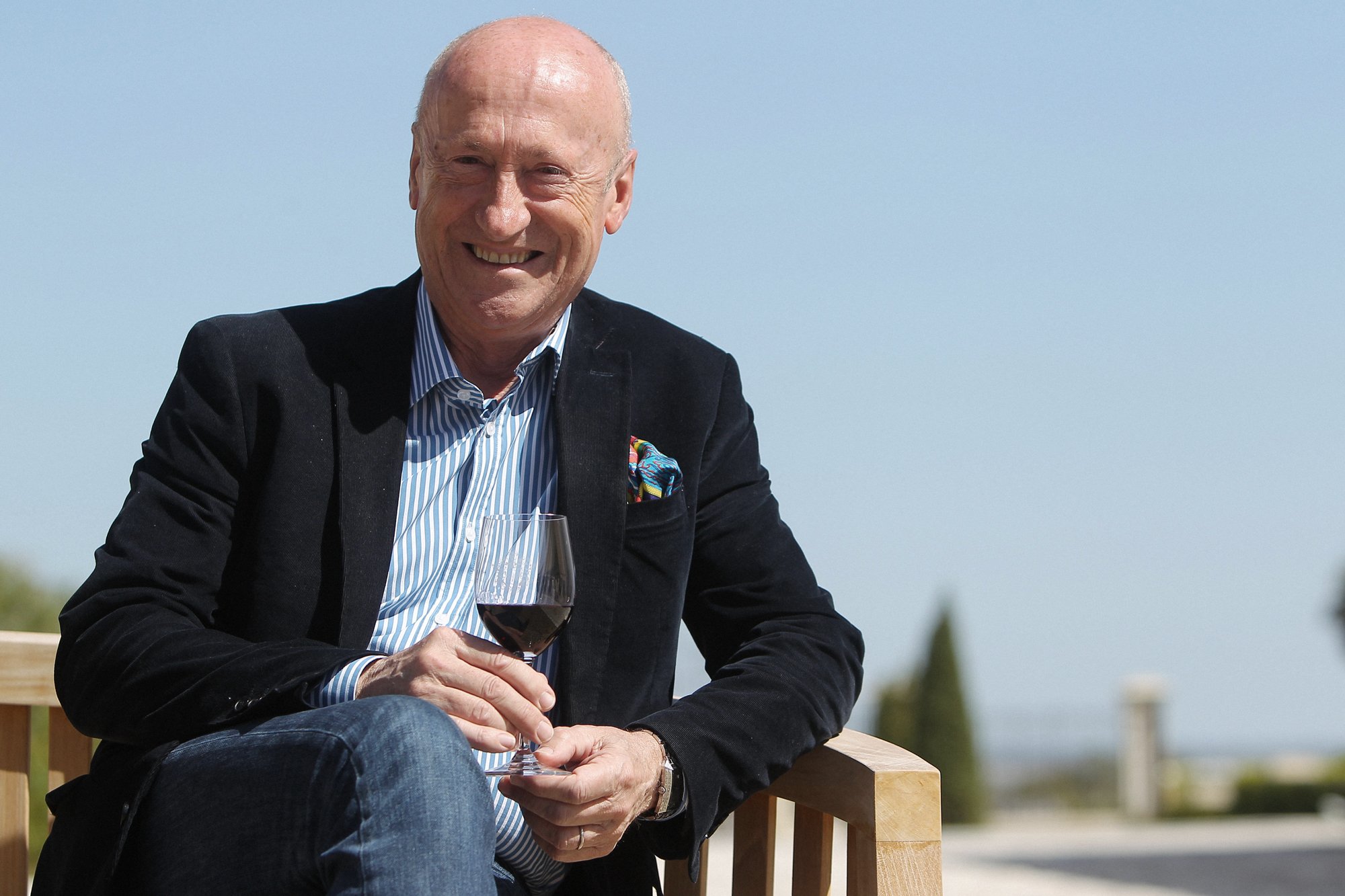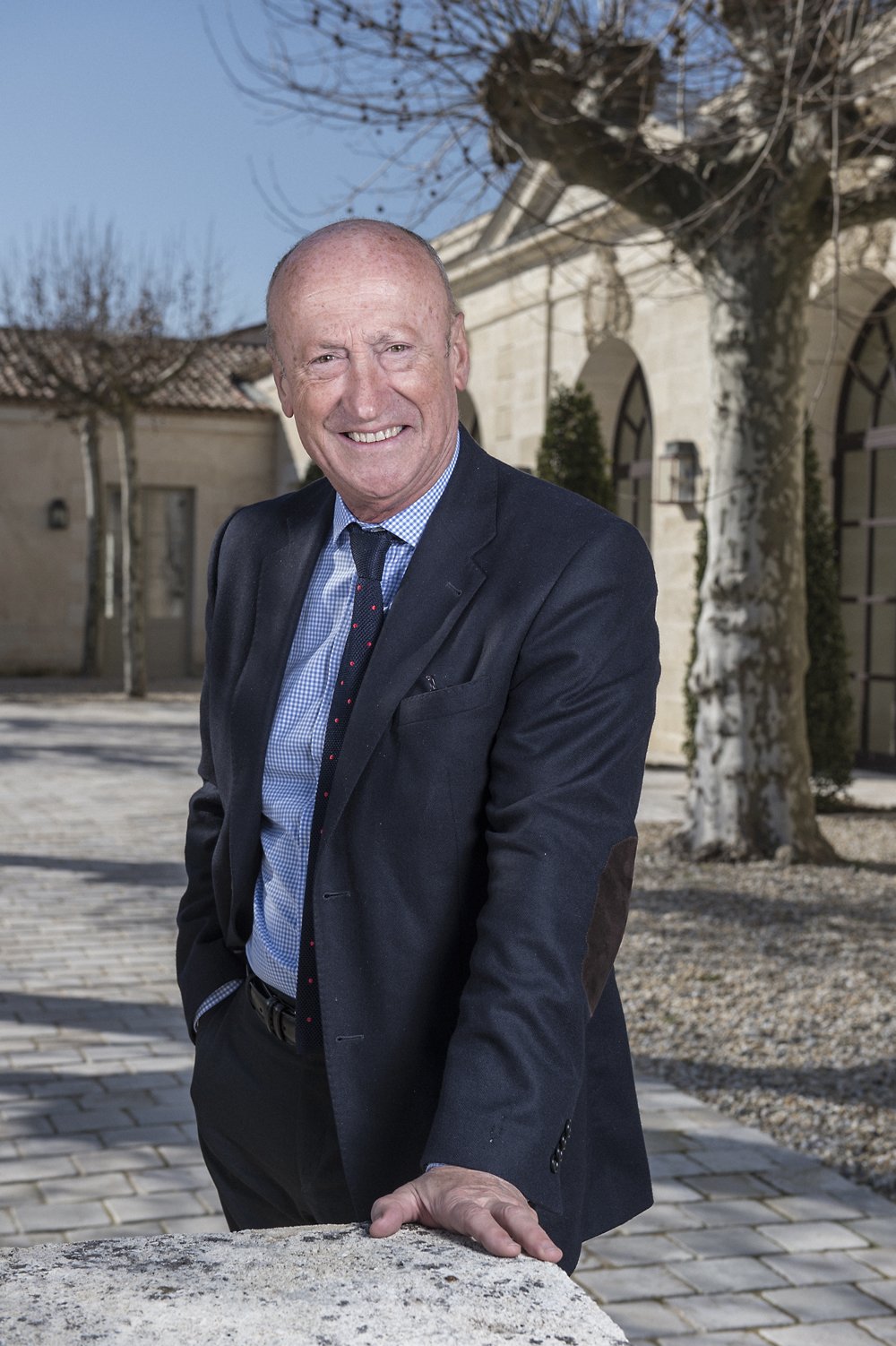▻ Hervé Berland
In conversation with Hervé Berland
Episode Summary:-
Hervé Berland is one of Bordeaux’s most renowned figures. On the eve of his retirement from Château Montrose, he talks about the three decades he spent at Château Mouton Rothschild, where he worked with both Baron Philippe de Rothschild and his daughter Baronne Philippine, and why, at 61 years old, he decided to leave his position as Managing Director to take on new challenges at Château Montrose.
Hervé recalls that at the age of five, his family moved from Bordeaux to West Africa, and how this early experience made him want to travel and discover the world. At university, he studied hotel and catering management, but when he was 27 years old, the opportunity came to join the team at Château Mouton Rothschild; he jumped at the chance, as it meant he could follow his dream of travel. Baron Philippe recruited him to look after the UK market for Mouton Cadet; it was the 1970s and Bordeaux was going through a bad patch. Hervé spent four months a year there and made many friends, particularly Douglas Morton and Tony Dee at the company’s importer, Hedges & Butler “They gave me a hard time, I was a little Frenchman coming up from the country, but after a few beers we became close friends. We celebrated the 40th anniversary of our friendship just before Covid.”
The UK was not the only market Hervé travelled to. Baron Philippe had an international vision for wine, and sent Hervé to Southeast Asia, where he was one of the first people in Bordeaux to explore these new markets (as he calls it, “putting seeds in the soil.”) He remembers how in Hong Kong people looked at him oddly for drinking red wine, as tea and beer were the customary drinks back then.
He reminisces about the Baron, who liked to work from his bed, and always took time to live life well: “Wine wasn’t just a business for him, it was a style of life.” He tells the story of how Baron Philippe fell in love with the estate and how his father was bemused as to why he would want to take it on, as he saw his son as a sophisticated Parisian. Sarah and Hervé discuss the rivalry between Mouton and Lafite, which Hervé reveals was more between the managers than the proprietors early on. Baron Philippe, he recounts, saw wine as a part of art, and surrounded himself with artists and intellectuals, as well as beautiful women. Tragically his first wife died during the war; despite being a Catholic and French, she was taken by the Nazis and died in a concentration camp, as she was married to a high-profile Jew. Her daughter Philippine was protected by some neighbours – she was seven years old when her mother was taken.
Sarah asks how it was when Baron Phillipe handed over the estate to his daughter. “It was not an easy transition; Baron Philippe had been in charge for fifty years.” He recalls Baronne Philippine calling the 400 members of staff to the cellars and delivering one of the humblest speeches he has ever heard. She told the staff she knew nothing about the business and asked every one of them to help her get through. He confesses that the memory still moves him today, and sums up Baronne Philippine’s contribution: “She maintained the spirit of Baron Philippe in the company, but with her own style, she was not a copy.” Her vision was even wider than her father’s, and despite having to deal with the fallout from the birth of Opus One (which caused some trouble in Bordeaux, where the partnership with a Californian was seen “almost a crime”), she continued expanding outside Bordeaux, and created Almaviva in Chile with Concha y Toro. Another of her innovations was creating the touring exhibition of the original artwork on the labels of Mouton Rothschild, an incredible collection of many of the world’s most famous 20th-century artists. He also adds that, though she was a good taster, she left Hervé to talk about the wines when they held masterclasses together around the world. Baronne Philippine appointed him as director of the estates and he enjoyed a close relationship with her. “I was a kind of link between the two generations, there was a lot of mutual trust between us.”
““Today we know much more about making wine because we have the best experts in oenology, we have the high-tech behind us and by our side, but we need a soul and the soul is being brought by the owner, they bring the spirit and without those two elements there is no fine wine.” ”
So why did he leave after 36 years? “I’d done my time… new challenges means keeping the youth I have in myself.” Though Hervé was 61, the age you can retire in France, he explains that the word “retire” has two meanings in French, “retire” and “retreat,” and he didn’t want to retreat, and something new beckoned. Baronne Philippine’s reaction? “She was furious.” Hervé recounts how he always had (and still has) great affection for the Baronne, who passed away in 2014, but the opportunity to work with Martin Bouygues at Château Montrose proved an irresistible challenge. It came about this way, he explains: Martin’s father Francis had always been a fan of the wines of Château Montrose, and when the opportunity came to buy it, he and his brother Olivier didn’t hesitate. Hervé notes that though the château was a second growth, it didn’t have a reputation as a super-second. He spent his first year looking at its history and asking what they could do better. Martin Bouygues, who is one of France’s wealthiest industrialists, invested heavily in the estate and was especially determined to create an environmental strategy, something which Hervé totally embraced, always asking what can we do further? He describes the many eco-measures taken at Montrose, the many logical steps to organic farming, recycling of CO2, sheep in the vineyard, among many other initiatives: “We need to maintain the insects and birds, every single part of nature is important in ecology.”
While running Château Montrose, Hervé helped the Bouygues find other fine wine and luxury investments including the legendary Loire property Clos Rougeard, Domaine Henri Rebourseau in Burgundy, and two distilleries in Cognac, as well as a truffle farm in Chinon—new challenges indeed!
Asked which vintages he was most proud of at Montrose, he cites 2014 and 2016. “2014 does not have the highest reputation, but was of the result of the team I appointed, it received unanimous success from the critics.” And 2016? “We are probably close to perfection with the 2016 vintage.” He attributes this to precision: “Precision is the key word. To be precise with the parcels, precise with the winemaking process, precise with the date of the picking, precise with the length of time the wine stays in the vats, precise with the press wine. We bring precision to every level of the winemaking process.”
So, what is next for Hervé Berland? Hervé shares his philosophy about life, and especially “General MacArthur’s Credo,” which says, “Youth is not entirely a time of life – it is state of mind.” “Wine is something that takes a couple of weeks to make, to vinify, but it takes years not to say decades, to make a fine wine.” He reveals that he is looking to help some producers, who are not necessarily well-known, to make good use of his experience and put a new focus on their properties. “Even the best collectors in the world always have interest in new discoveries,” he concludes, an interest he is certainly pursuing himself. Hervé Berland’s definition of retirement does not include the word “retreat.” Like him, we look forward to the next exciting chapter.
Running Order:-
-
0.00 – 17.23
“Baron Phillipe hired me and taught me so much."– Hervé Berland
– Hervé Berland’s childhood years in Africa, opening his eyes to other cultures.
– Joining the Rothschilds at Château Mouton Rothschild at 27 years old.
– His first role, promoting Mouton Cadet in the UK market.
– The Bordeaux market in the 1970s.
– Baron Philippe de Rothschild sending Hervé to SE Asia in 1978.
– Memories of Baron Philippe de Rothchild.
– Rivalry between Châteaux Mouton Rothschild and Lafite. -
17.24 – 26.06
“Baronne Philippine added her style, and added ambition.” – Hervé Berland
– Baroness Philippine takes over Château Mouton Rothschild after her father’s 50-year reign.
– The reaction in Bordeaux to the joint venture with the Mondavis to create Opus One.
– The Mouton Rothschild exhibition of labels by famous 20th century artists goes round the world.
– Hervé’s recollections of working with Baroness Philippine. -
26.07 – 38.03
“New challenges means keeping the youth I have in myself.” – Hervé Berland
– Why Hervé decided to leave Château Mouton Rothschild.
– Baroness Philippine’s negative reaction to him leaving.
– Joining Martin Bouygues at Château Montrose.
– Creating Château Montrose’s environmental strategy.
– The new estates bought by the Bouygues. -
38.04 – 49.45
“Nobody grows old by merely living a number of years. People grow old only by deserting their ideals. Years may wrinkle the skin, but to give up interest wrinkles the soul.”– General Douglas MacArthur
– The two Château Montrose vintages Hervé is most proud of: 2014 and 2016.
– Why he believes 2016 Château Montrose is close to perfection.
– His philosophy on making fine wine.
– His inspiration from General Douglas MacArthur’s Credo.
– His plans for life after Château Montrose.







Gary Boom of Bordeaux Index on how he built one of the world’s largest fine wine companies, his successes and failures, and his predictions for the future of fine wine.